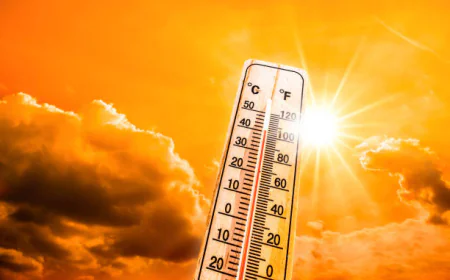Direct effect of temperature on brain: Hot or cold weather increases hatred
Direct effect of temperature on brain: Hot or cold weather increases hatred, best mood in 12 to 21 degree Celsius

Temperature is directly related to your mind and behaviour. Too much heat or cold fills you with anger and hatred. We are in the best mood at 12 to 21 degrees Celsius. Anger also comes less during this time.
The Lancet Planetary Health studied the behaviour of people living in 773 US cities by temperature. In this, it was found that anger increases in humans when they are too hot or too cold and they express it online when they are not able to show anger or hatred physically.
The report said – during the US heat wave, cases of online hate speech or hate text increased significantly. Researchers say that 25% of Black and 10% of Hispanic people in America are the most victims of online hate speech. Change in weather has resulted in four times more people in the LGBTQ community being victims of online hate speech.
The team at The Lancet Planetary Health, led by Leonie Wenz of the Potsdam Institute for Climate Impact Research, examined 400 million tweets in the US over the 6 years from May 2014 to May 2020. For this, he designed an algorithm with artificial intelligence, which recognized hate speech. In this, 7 crores 50 lakh tweets were of hate speech, i.e. 2% of the total tweets.
The team checked which tweets were from which area and what was the weather like there that day. Where the temperature was 15 to 18 degree Celsius, there was a slight increase in hate speech tweets. People living in the temperature of -3 to -5 degrees Celsius tweeted 12.5% more hate speech than others.
In desert areas where the temperature was 42 to 45 degrees Celsius, tweets containing hate speech increased by 22%. Andres Leverman, who was part of this study, says that even in areas with higher average incomes where people can afford ACs when the temperature rises, people have angry hate tweets. They say, but it is not that we are not able to harmonize with the weather.
For hate speech, the team of researchers took the United Nation's definition as the standard. According to this, any kind of derogatory remarks on any person or group on the basis of their religion, race, nationality, colour, gender or any other identity comes under hate speech. The biggest difficulty came in classifying comments that were offensive to one group or community with respect or love for another.






































.jpeg)



































































































